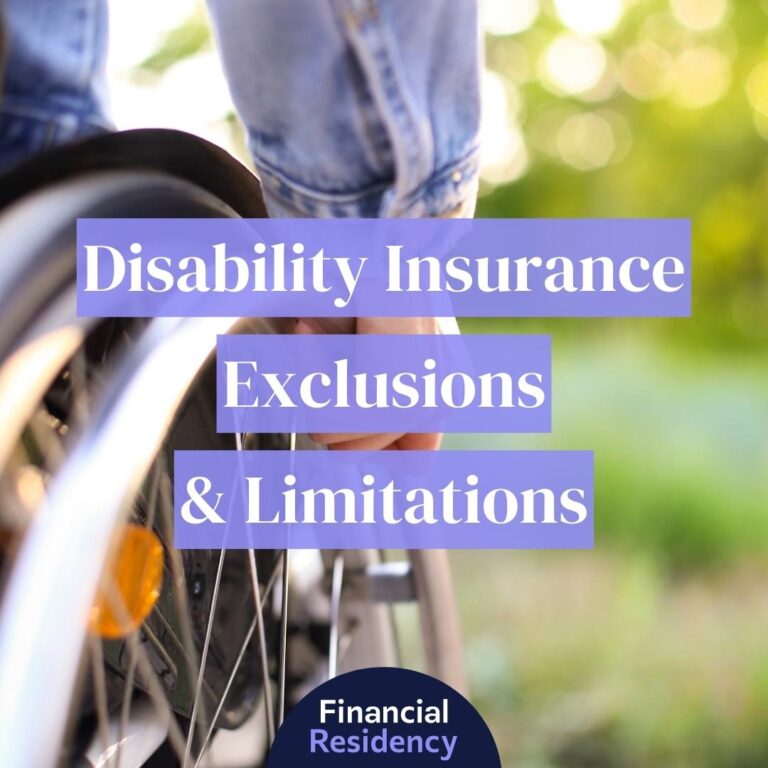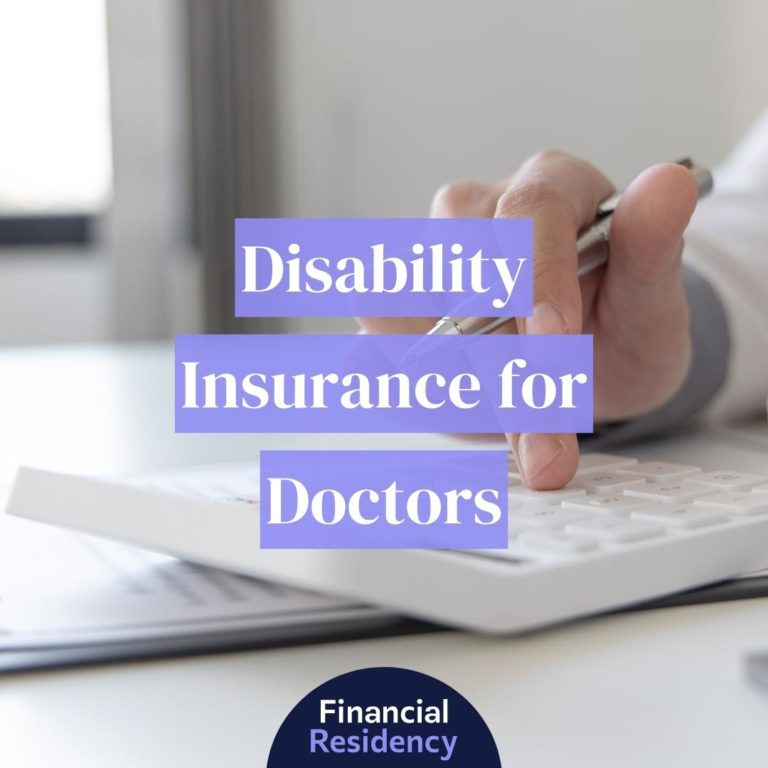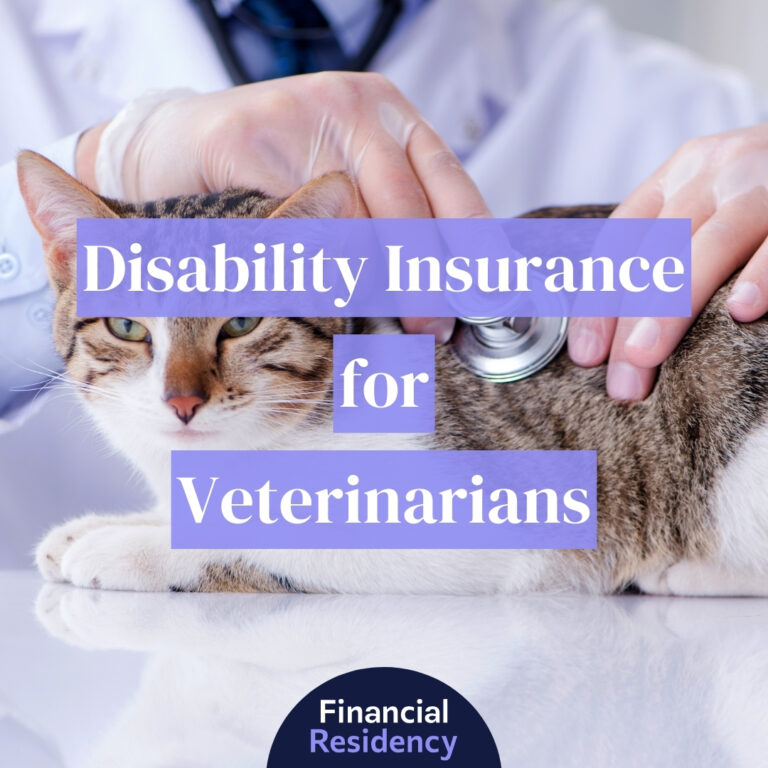Facing a disability is scary. Not only must you deal with an illness or injury, but the prospect of not having income for months or years can be frightening. Disability insurance protects against these situations, but not everyone has it or thinks it’s necessary.
Here’s everything you must know about disability insurance and whether you should have it.
What Is Disability Insurance?
Disability insurance protects you should you become too sick or injured to work. It pays a portion of your income for a few months or years, depending on your coverage type.
It’s insurance to cover your income should you lose it due to circumstances outside your control.
Learn More:
How Disability Insurance Works
Disability insurance, like any insurance, requires monthly payments in exchange for financial coverage if you cannot work.
Disability insurance pays a percentage of your earnings monthly. There is short-term and long-term insurance, with long-term insurance covering you through retirement in some cases.
Each insurance has different requirements, including the following:
- Qualifying incidents – Each policy has a different definition of a qualifying incident. For example, some cover you if you are injured, and others only cover your loss of income if you become too ill to work.
- Payment amount – The payment amounts vary by policy and what you choose. Most cover up to 60% of your monthly income, but you may find policies that pay more or less.
- Length of coverage – Each policy has a different coverage period. Short-term policies usually last up to one year, and long-term policies last various lengths, usually 2, 5, 10, or 20 years. Some cover you until age 65.
Learn More:
Who Is Disability Insurance Best For?
Disability insurance is for everyone, especially if you or others rely on your income. For example, if you’re the only person working in your family, your household depends on your income.
Anyone who needs reassurance that their income will continue even if they become ill or injured should consider disability insurance. If you don’t have money set aside to cover your living expenses for many months or years, disability insurance will protect you.
Disability Insurance by Profession:
- Disability Insurance for Anesthesiologists
- Disability Insurance for Attorneys & Lawyers
- Disability Insurance for Cardiologists
- Disability Insurance for Dentists
- Disability Insurance for Dermatologists
- Disability Insurance for Doctors
- Disability Insurance for Nephrologists
- Disability Insurance for Nurses
- Disability Insurance for Nurse Practitioners
- Disability Insurance for Oncologists
- Disability Insurance for Ophthalmologists
- Disability Insurance for Orthopedic Surgeons
- Disability Insurance for Physical Therapists
- Disability Insurance for Residents
Short-Term vs. Long-Term Disability
Short-term disability insurance has a shorter coverage period than long-term insurance. Short-term insurance covers you for a few months to a year.
Long-term disability insurance is for more severe illnesses or injuries that make it impossible to work for many years.
If you have short and long-term disability insurance, the short-term policy is in effect first. The long-term coverage begins when the short-term coverage ends.
Individual DI vs. Work-Provided DI
Some employers offer group disability insurance and may cover the premiums or a portion of them. Even if your employer doesn’t cover the premiums, you may be able to purchase a policy.
These policies have a short window of opportunity, so don’t miss the sign-up period if you’re interested.
If your employer doesn’t offer disability insurance or you’re self-employed, you can purchase an individual disability insurance policy. Even if your employer provides coverage, you can also buy a personal policy for more coverage.
Typically, employer-sponsored disability insurance offers lower coverage amounts and may not be enough to protect your family.
Additional Disability Income Coverages
There are some options for additional disability income coverage, but they may not be enough to cover all your expenses.
These policies make good supplemental income, but disability insurance protects you the most.
Supplemental Security Disability Income – SSDI
SSDI is Social Security Disability Income. Anyone who works qualifies for SSDI; however, it’s usually much more difficult to obtain.
To qualify, you must first have paid into Social Security by holding a job or paying self-employment taxes. Your payments to Social Security must have been adequate and recent enough.
In addition, your disability must meet the Social Security Administration’s guidelines, and you must be disabled for a year or longer. To qualify, your disability must make it impossible to do regular activities such as walking, sitting, and lifting, or affecting your memory.
Applying for SSDI
You can apply for SSDI online, over the phone, or in person. To do so, you must have everything on this checklist and complete the application.
From there, the Social Security Administration determines the following:
- You have a qualifying medical condition and paid into Social Security
- You worked enough years to be eligible
- You are unable to work any job
The processing time varies for SSDI, but getting an answer can take quite a while.
VA Disability Compensation
Veterans may be eligible for disability compensation for injuries or illnesses that occurred during or after service. However, the disability must be connected to your time in the service. This includes any conditions you had before going into the service that serving worsened or issues that arise after your time in the service but are connected.
Applying for VA Disability Compensation
If you’re eligible for VA disability, you can file a claim online. Be sure to include any evidence, sending them in with your application for faster processing. Evidence could include medical or hospital records and supporting statements from anyone familiar with your condition.
On average, it takes the VA 118 days to decide on VA disability claims.
Learn More:
Disability Insurance Application Process
If you decide disability insurance is right for you, you’ll go through an application process like any other insurance.
In addition, there is an underwriting process insurance companies use to determine if you’re eligible.
1. Apply
First, determine if you’re applying for group disability insurance or private. If your employer offers it, take advantage. When you’re first hired, you have a small window to apply for it. Some companies have open enrollment opportunities once a year too.
If you’re getting private disability insurance, you can shop around for the best insurance company and apply individually.
2. Required Application Information
Because disability insurance from a private insurance company is a risk for them, they do their due diligence to ensure you’re a good risk. This is also how they determine your premiums.
Here’s what most insurance companies consider.
Your Age
The older you are, the more risk you pose of becoming disabled. When you apply in your younger years, you may be eligible for lower premiums. This doesn’t mean you shouldn’t apply when you’re older, but you’ll pay more monthly.
Health History
Insurance companies are interested in your health history to determine your likelihood of becoming disabled. Remember, disability insurance isn’t only for injuries. For example, you can get coverage if you have a stroke or are diagnosed with cancer.
Because of this, insurance companies look at your medical history and lifestyle habits, such as drinking or smoking, to determine your risk.
Your Job
Your job plays an important role in your disability insurance. For example, if you work something risky, like construction or window washing, you are much more at risk of a disability than someone who sits at a computer all day.
Your job is also important because it lets insurance companies know how specialized your position is and whether you can do something else if you’re disabled. For example, if your job requires you to be on your feet all day and you end up in a wheelchair, your options for working will be limited, making you a higher risk.
Your Income
The more money you make, the higher your risk to the insurance company. This may mean higher premiums. Since disability insurance covers a percentage of your income, lower-income earners pay lower premiums.
Is Disability Insurance Really Needed?
Disability insurance provides peace of mind, especially for high-income earners like doctors. If you’re suddenly unable to practice, how would your family survive financially?
If you’re independently wealthy, know you have an inheritance available, or have family that can support you, then disability insurance may not be necessary. However, if none of those situations apply to you, disability insurance is worth considering.
Know if You Are Covered Through Work
If you think your employer offers disability insurance, inquire about it. There may be an open enrollment period. Some employers also automatically include disability insurance as a benefit because they cover the premiums.
If your employer offers such coverage, inquire about how much you’d receive. Typically, group coverage isn’t enough to cover a doctor’s salary, and you may need to supplement with a private policy.
Frequently Asked Questions
Disability insurance helps protect you in times of injury or illness. Here are some of the most common questions about the coverage and how it works.
Is It Possible for My Disability Insurance Company to Deny My Claim? Can I Apply again?
Disability insurance companies can deny your claim even if you have ample proof of the disability. They have guidelines they must follow, and if your claim doesn’t fit them, they can deny it.
If you’re denied, you may file an appeal, but it may be best to secure the help of an attorney first.
What Percentage of Individuals Get Their Claim Denied on the First Attempt?
The national approval rate for Social Security disability claims is 38%, and about 51% of denied and appealed applicants were awarded benefits.
Is It Possible to Get Disability Insurance That Covers 100% Of Your Income?
Most disability insurance companies cover up to 60% of your income; some will go as high as 70%.
Do Disability Insurance (Private or SSDI) Providers Accept Mental Illness Claims?
Yes, mental illness claims can cause disability and allow you to be awarded a payout. However, like any illness or injury, you must have ample proof that the disability makes it impossible to work.
How Do Disability Insurance Companies Calculate How Much Is Paid Out and for How Long?
When you purchase disability insurance, you’ll know how long you can receive benefits. You must continually re-verify your condition to ensure you’re still eligible. To determine how much is paid out, it’s a flat percentage of your annual or monthly income.
For example, if you earn $100,000 a year and your insurance covers 60% of your income, you’d receive $60,000 annually if you receive benefits for a year or longer.
Should You Get Disability Insurance?
Disability insurance provides peace of mind and financial protection. The younger you are when you get it, the cheaper your premiums may be (there’s no guarantee).
The key, however, is that you have financial protection if you suddenly cannot work. Unless you have significant savings to cover life’s expenses if you can’t work, it’s the best way to protect yourself.



